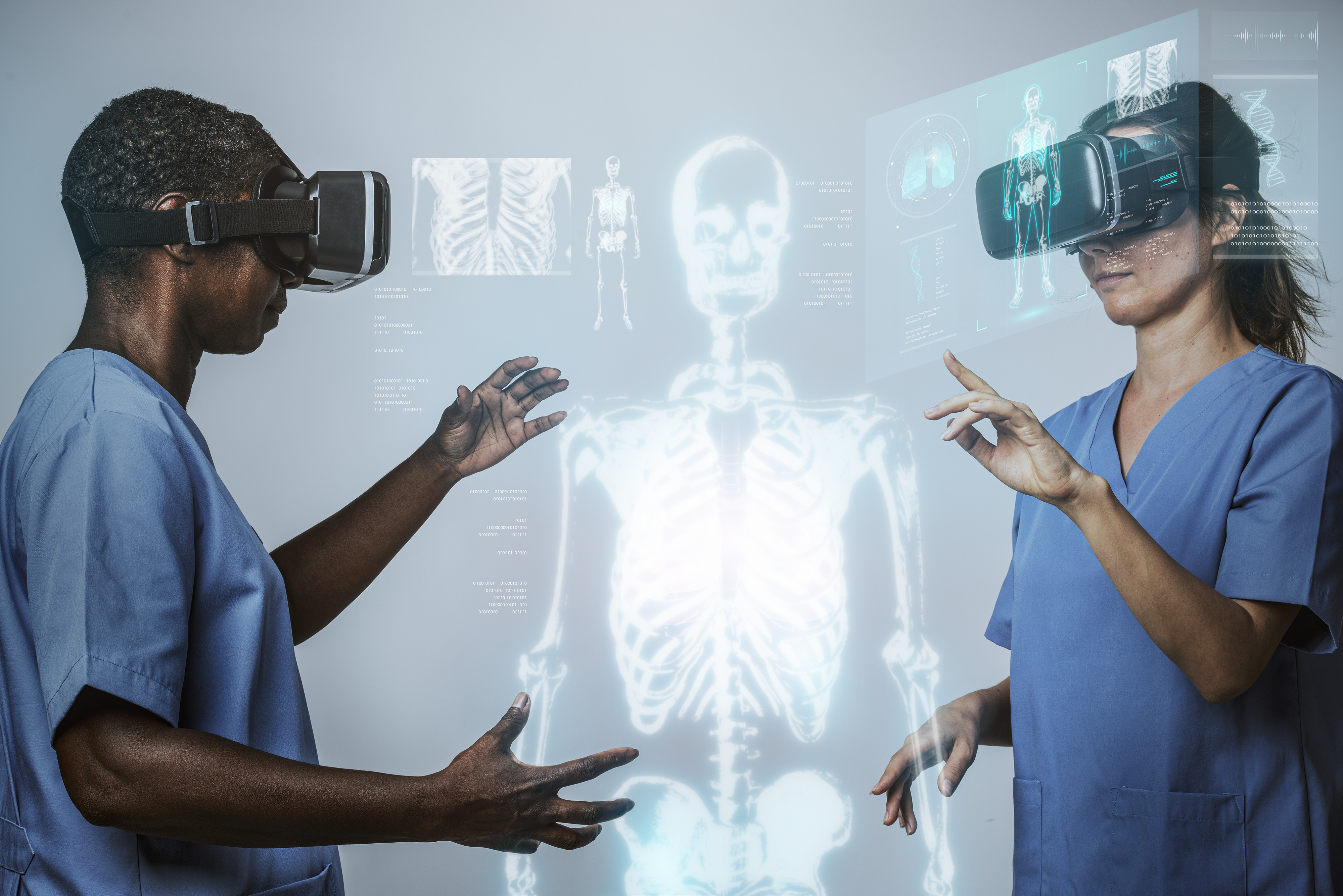How Tech is Enabling Smarter Healthcare Systems

The healthcare industry has undergone significant transformations in recent years, mainly driven by technological advancements. The integration of technology has revolutionized the way healthcare systems operate, providing patients with timely, efficient, and cost-effective care. From Electronic Health Records (EHRs) to telemedicine, Internet of Medical Things (IoMT), and artificial intelligence (AI), technology has become an indispensable part of the healthcare landscape. In this article, we will explore how tech is enabling smarter healthcare systems, highlighting the benefits, challenges, and future predictions in this rapidly evolving field.
Smart Hospitals: Where Technology Meets Healthcare
The concept of smart hospitals is not new, but with the increasing use of technology, these facilities have taken on a new level of sophistication. Smart hospitals integrate cutting-edge technology, such as medical imaging equipment, IoT sensors, and RFID tags, to create a seamless patient experience. Technology enables real-time tracking, better patient flow, and easier communication between healthcare professionals.
One notable example is the Shanghai Xuanwu Hospital, which has implemented an advanced smart hospital system. The hospital utilizes AI-powered medical robots to assist with tasks such as patient monitoring, nursing, and even surgery. These robots not only enhance patient care but also reduce the workload of healthcare professionals.
Telemedicine: Revolutionizing Remote Healthcare
Telemedicine, or remote health consultations, has gained immense popularity in recent years. This technology enables patients to receive medical attention from the comfort of their homes, using platforms such as video conferencing and mobile apps. Telemedicine has opened up new opportunities for healthcare providers to reach remote areas and underserved populations.
According to a study published in the Journal of the American Medical Association (JAMA), telemedicine has been effective in reducing hospital readmissions, improving medication adherence, and enhancing patient satisfaction.
Artificial Intelligence (AI) in Healthcare: The Future is Now
AI has been one of the most significant technological advancements in the healthcare industry. This technology enables healthcare providers to analyze large amounts of data quickly, identify patterns, and make predictions. AI has been used in various applications, including:
- Predictive Analytics: AI-powered predictive analytics helps identify high-risk patients, allowing healthcare providers to take proactive measures to prevent complications.
- Medical Imaging Analysis: AI enables the analysis of medical images quickly and accurately, improving diagnosis accuracy and detection of diseases such as cancer.
- Robot-Assisted Surgery: AI-powered robots assist surgeons during operations, improving precision and reducing recovery time.
According to a report by Grand View Research, the AI in healthcare market is expected to reach $36.7 billion by 2025, growing at a compound annual growth rate (CAGR) of 38.4%.
Internet of Medical Things (IoMT): Connecting Patients and Healthcare Providers
IoMT refers to the network of medical devices, applications, and services designed to collect and analyze patient data. This technology has enabled real-time monitoring, remote patient tracking, and improved patient engagement.
Examples of IoMT include:
- Wearable Devices: Wearable devices such as fitness trackers and smartwatches monitor patient health metrics, such as heart rate, blood pressure, and glucose levels.
- Implantable Devices: Implantable devices like pacemakers and insulin pumps transmit data to healthcare providers, enabling them to monitor patient health remotely.
- Medical Home Platforms: Medical home platforms, such as smart beds, connect patients to healthcare providers and family members, improving communication and patient outcomes.

Electronic Health Records (EHRs): Securing Patient Data
EHRs have revolutionized the way healthcare professionals manage patient data. These digital records enable secure storage, easy access, and efficient sharing of patient information.
However, EHR adoption has also raised concerns about data security and interoperability. Healthcare organizations must prioritize data encryption, access controls, and API connectivity to ensure seamless EHR adoption.
Challenges and Future Predictions
While technology has enabled smarter healthcare systems, various challenges remain:
- Data Security: Healthcare organizations must ensure robust data security measures to protect sensitive patient information.
- Interoperability: EHRs and other health IT systems must be designed to integrate seamlessly, reducing data duplication and increasing efficiency.
- Cybersecurity: The increasing use of AI and IoMT has raised concerns about cybersecurity. Healthcare organizations must prioritize threat detection and incident response.
Looking ahead, future predictions suggest increased adoption of AI, IoMT, and blockchain technology in the healthcare industry. According to a report by McKinsey, AI will become a critical component of the healthcare industry, enabling personalized medicine and precision health.
In conclusion, technology has enabled smarter healthcare systems by providing patients with timely, efficient, and cost-effective care. From EHRs to telemedicine, AI to IoMT, technology has transformed the way healthcare systems operate. As the healthcare landscape continues to evolve, it is essential for healthcare providers, policymakers, and patients to stay informed and adapt to the changing needs of the industry.
As a reader, we encourage you to take actionable steps towards promoting smart healthcare systems:
- Stay Informed: Stay up-to-date on the latest technological advancements and innovations in the healthcare industry.
- Support Research: Encourage research and development of new technologies, such as AI and IoMT, to improve patient outcomes and healthcare efficiency.
- Collaborate with Healthcare Providers: Collaborate with healthcare providers and policymakers to develop effective strategies for EHR adoption, data security, and interoperability.
- Advocate for Smart Healthcare: Advocate for smart healthcare systems and support initiatives that promote patient-centered care.
Share This Article
Do you think tech is enabling smarter healthcare systems? What do you think is the most significant technological advancement in the healthcare industry? Share your thoughts in the comments below!

